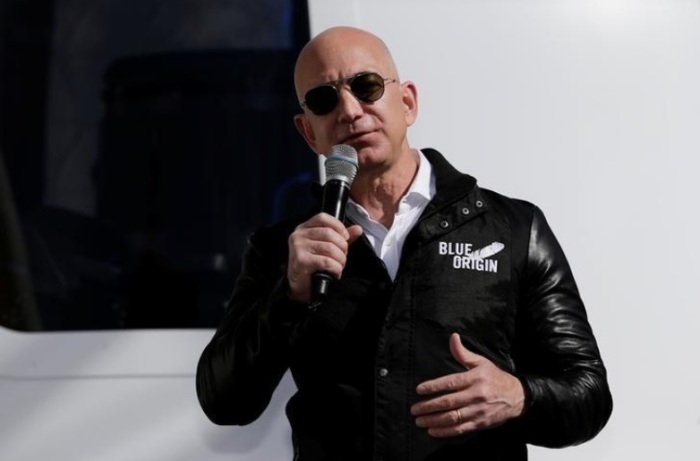Amazon, top companies announce plan to help American workers, but Dem candidates aren’t convinced

After more than two decades of maximizing profits mainly for the benefit of shareholders, some 181 leading corporations announced their new purpose would be to improve the lives of workers and all other stakeholders, but not everyone is buying it.
The CEOs of these companies, including Amazon, Target, Bank of America and JPMorgan Chase & Co., are all members of the influential Business Roundtable that represent major employers in every state. The CEOs in the group also lead companies that have more than 15 million employees combined and more than $7 trillion combined in annual revenue.
“Since 1978, Business Roundtable has periodically issued Principles of Corporate Governance. Each version of the document issued since 1997 has endorsed principles of shareholder primacy – that corporations exist principally to serve shareholders. With today’s announcement, the new Statement supersedes previous statements and outlines a modern standard for corporate responsibility,” the business leaders said in a statement Monday.
“Americans deserve an economy that allows each person to succeed through hard work and creativity and to lead a life of meaning and dignity. We believe the free-market system is the best means of generating good jobs, a strong and sustainable economy, innovation, a healthy environment and economic opportunity for all,” the new statement on the purpose of a corporation notes.
The CEOs said the economy isn't working for everyone and their joint statement shows their commitment to fix it.
“Investing in our employees. This starts with compensating them fairly and providing important benefits. It also includes supporting them through training and education that help develop new skills for a rapidly changing world. We foster diversity and inclusion, dignity and respect,” the statement notes.
“The American dream is alive, but fraying,” Jamie Dimon, chairman and CEO of JPMorgan Chase & Co. and chairman of Business Roundtable, said. “Major employers are investing in their workers and communities because they know it is the only way to be successful over the long term. These modernized principles reflect the business community’s unwavering commitment to continue to push for an economy that serves all Americans.”
Alex Gorsky, chairman of the board and CEO of Johnson & Johnson and chair of the Business Roundtable's Corporate Governance Committee, said: “This new statement better reflects the way corporations can and should operate today. It affirms the essential role corporations can play in improving our society when CEOs are truly committed to meeting the needs of all stakeholders.”
Despite the flowery language of the group’s statement, not everyone is convinced.
In an interview with The New York Times, Democrat presidential candidate Sen. Bernie Sanders of Vermont, who identifies as a Democratic Socialist, said the group was “feeling the pressure from working families all over the country.”
“I don’t believe what they’re saying for a moment,” he said Monday. “If they were sincere, they would talk about raising the minimum wage in this country to a living wage, the need for the rich and powerful to pay their fair share of taxes.”
Sen. Elizabeth Warren of Massachusetts, who is also in the race to become the presidential nominee for the Democrat Party, said, “These big corporations can start following through on their words by paying workers more instead of spending billions on buybacks.”
“A year ago, I called out CEOs and the Business Roundtable for their single-minded focus on maximizing shareholder value at the expense of workers. Looks like they finally got the memo. But without real action, their announcement is meaningless,” she added Tuesday on Twitter.
It was noted by the Times that the new statement did not mention that the highest-paid 100 chief executives make 254 times the salary of an employee receiving the median pay at their company.
Nancy Koehn, a historian at Harvard Business School, told the publication that the business leaders are beginning to accept that they cannot continue with “business as usual.”
“They’re responding to something in the zeitgeist,” Koehn said. “They perceive that business as usual is no longer acceptable. It’s an open question whether any of these companies will change the way they do business.”





























